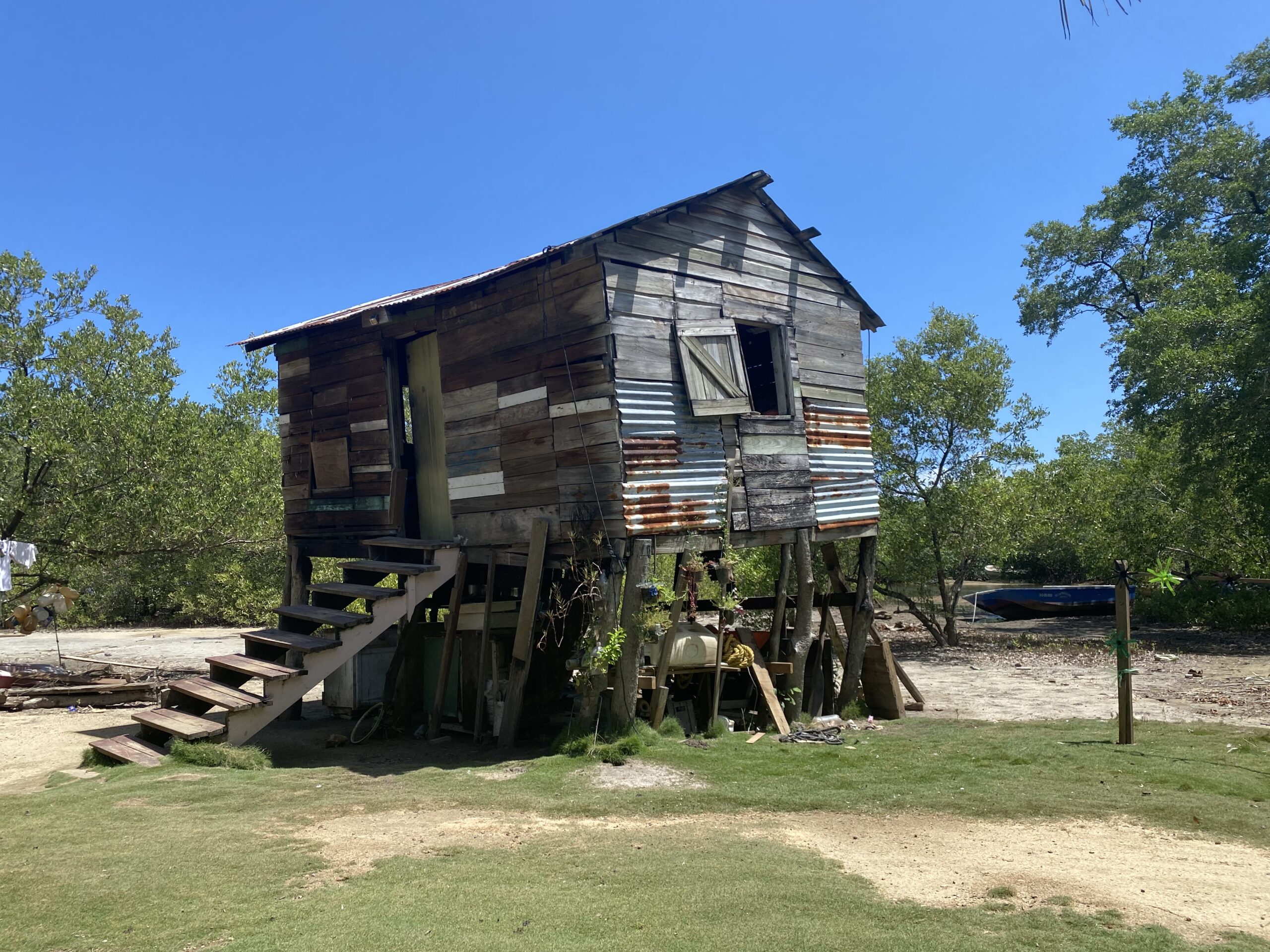A wooden boat more than 100 years old? An unmanned raft with a lantern? Join us on a walkabout in Hottest Sparrow!
On the north side of coastal Roatan, a short distance west of Palmetto Bay lies the village of Hottest Sparrow. It is easy to associate the name with pirates since Jack Sparrow, the character played by Johnny Depp in “Pirates of The Caribbeans” bears the same name. But there is no link here. Having said that, no one knows where the name of the village comes from.
Our guide is Winston Rollins Mann Thomas (54). He grew up in Hottest Sparrow and has ancestry from Jamaica and the Cayman Islands, descendants of African slaves. On a daily basis, he is a gardener for many of the western immigrants on Roatan who live or have houses in the immediate area. He has no gardening education but has grown up farming in the jungle, which can be relevant when the “garden” is actually a tropical jungle.
Hottest Sparrow has about 110 residents made up of three families, plus some Honduran immigrants from the mainland. The latter is among those who think they will find work in the tourism industry here but often find that it is harder than they think as most of them are without education and experience in the field.
On the sports field, a couple of cows ensure that the grass is kept relatively short. A turkey struts around between the houses, unaware that it is soon to be Christmas food. A toy car lies broken down after many years of use. The barber shop is only staffed when a haircut is needed, while the “pulperia” (grocery store) is always open.
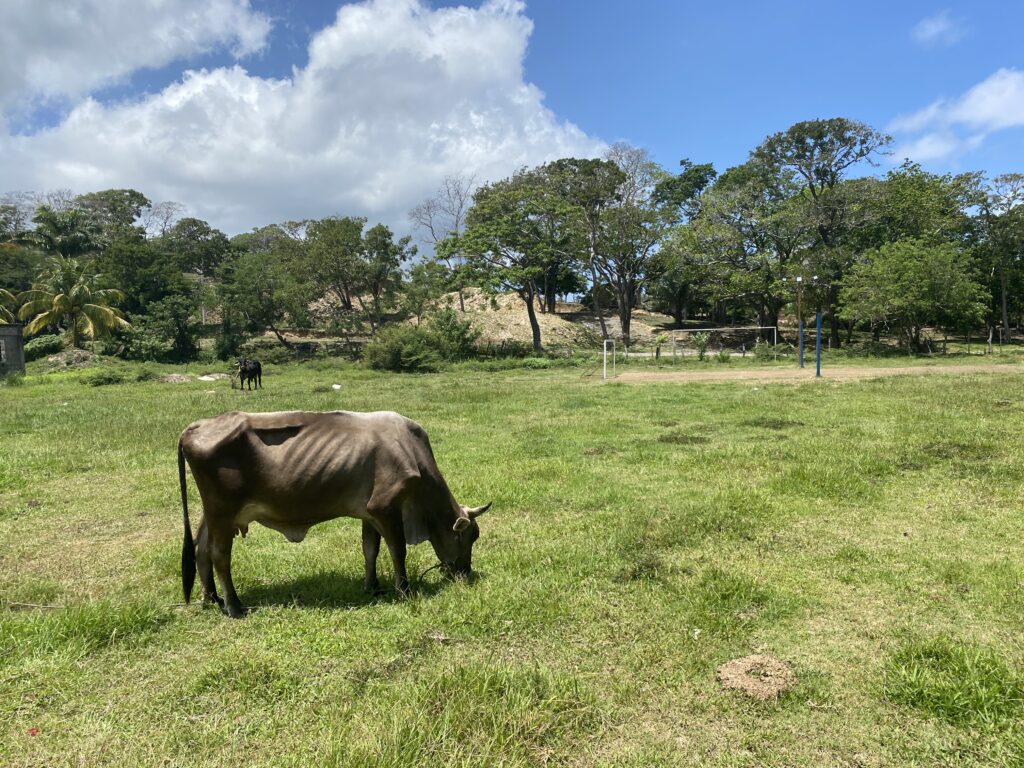
Winston and his family live down by the sea in two log cabins, one of which is a kitchen, dining area and living room, while the other is a bedroom. Outside, his wife has decorated the garden with various materials she has found. Plastic bottles have become flowers and bicycle wheels form a fence. And it is planted in whatever is available to plant in. Even a small boat engine has found its place in this creation.
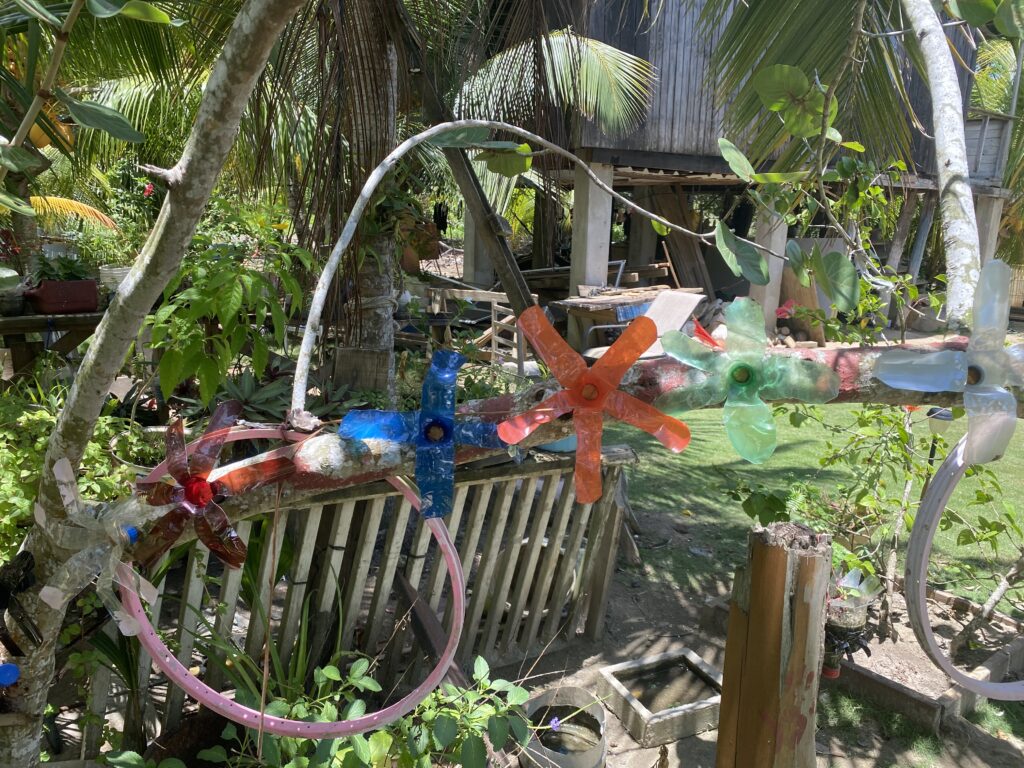
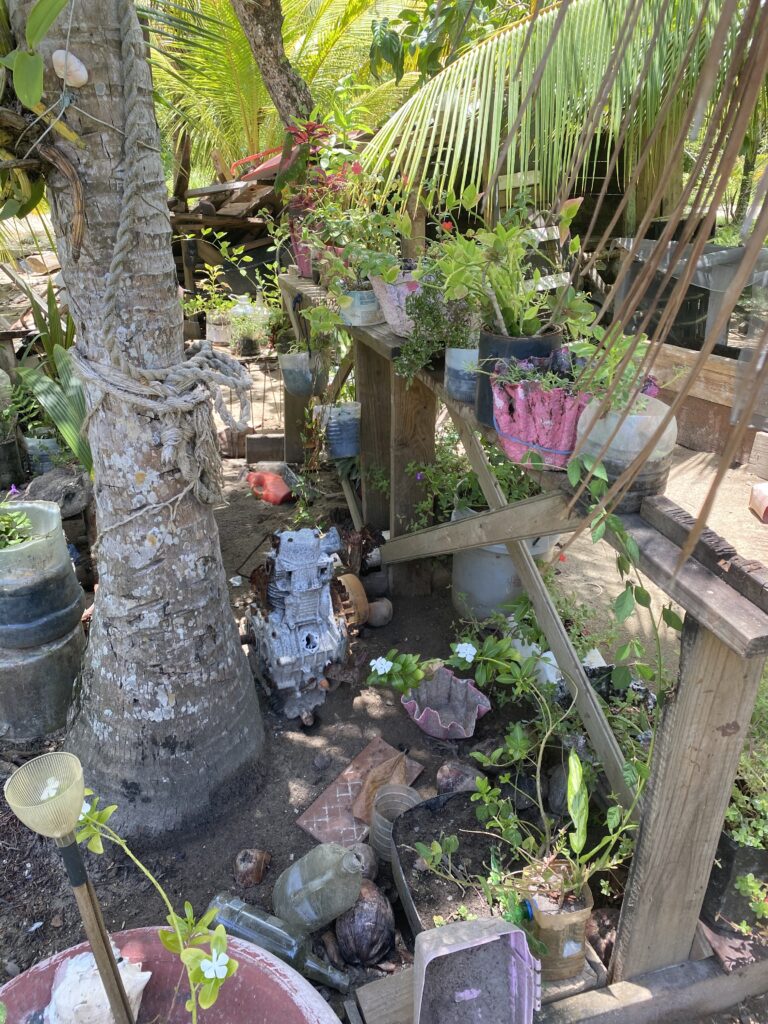
The cabins are built on stilts, as everyday life requires a place to work in the shade under the house. But this also is to avoid the housing units being affected by flooding, which is highly likely during hurricanes or tropical storms. The cabins are located behind an impenetrable mangrove forest which provides protection from the weather and winds off the sea when it gets bad.
We go down along a pier that takes us through the mangroves. At the end of the pier is a turquoise boat.
“I’m the third generation to have this and it’s over 100 years old,” says Winston.

I stand there and gape because it looks great considering its age. He keeps the equipment in order because the boat is very important as the fishing trips every Saturday means food on the table for the family.
He shows me some stone stairs at a distance from the shore.
-When hurricane “Mitch” hit in 1998, Roatan was doing reasonably well, but the water rose considerably and never went back. So many houses had to be moved further in.
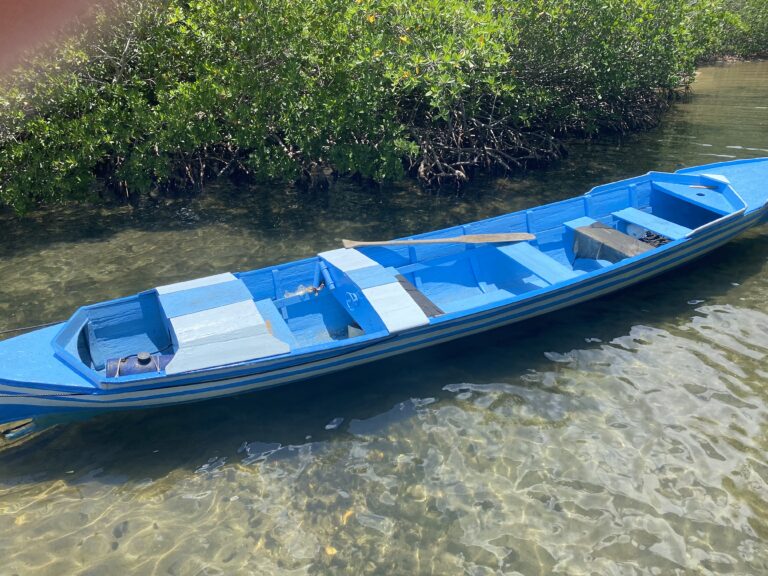
This hurricane destroyed a lot on the mainland and thousands perished. Out here in the Bay Islands, the Eastern island of Guanaja suffered the most. Almost all vegetation was blown away and people found bodies from the mainland floating, onto the beaches east of Roatan.

The stairs stand as monuments after Hurricane Mitch (1998), where the ocean forced the population to move their houses to dry land. (Photo: BIM)
Winston points towards a channel opening in the reef just visible under water that was once called “Turtling Bay”, according to a British map from 1775.
“An elderly lady in the village told me that when she was young, she often saw a small unmanned wooden raft with a lantern coming sailing into the channel towards where the ships once had their berth on the inside of the reef. It scared the wits out of her.” We immediately ask to speak to the elderly lady, but she is long dead.
Winston shows me a plant.
“This one is good if you have a stomachache”
He is one of many who believe more in natural medicine than science and refused to take vaccines during the pandemic. And then he is a Seventh-day Adventist with faith in God.

“Where do you farm?” we ask.
“Inside the jungle, on the other side of the main road”, he replies.
They practice so-called agroforestry, planting fruit and vegetables in patches in the jungle. Here there are no cultivated fields handled with agricultural equipment. What is left over after feeding the families is sold along the road. It is usually plantain, which is not very sweet and is widely used in Central American cooking, most often as chips or as a potato substitute for dinner.
Winston is very interested in the history of this area. He says that the village was once a few hundred meters further east and was moved for unknown reasons. He also tells about all the peaks in the area called Pirate Hill.
“There the pirates sat and scouted for pirate hunters after they had raided merchant ships”
And before that, we hear of the Paya Indians sitting there scouting for pirates. That was before they were driven out by the white man. But that’s another story!
Do you want to have another walkabout in a different place? Here it is
Written by; Roger Bjoroy-Karlsen
Edited by: Lauran Timlin

